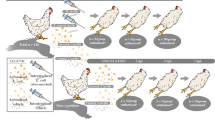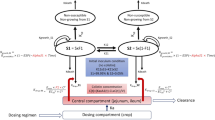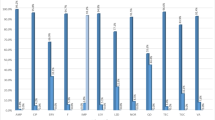Abstract
IN recent years considerable attention has been paid to the fact that an increase in susceptibility to the pyrogenic and shock-producing action of bacterial endotoxins could be demonstrated in animals showing delayed hypersensitivity1.
This is a preview of subscription content, access via your institution
Access options
Subscribe to this journal
Receive 51 print issues and online access
$199.00 per year
only $3.90 per issue
Buy this article
- Purchase on SpringerLink
- Instant access to the full article PDF.
USD 39.95
Prices may be subject to local taxes which are calculated during checkout
Similar content being viewed by others
References
Howard, J. G. et al., Brit. J. Exp. Path., 40, 281 (1959). Suter, E., et al., Proc. Soc. Exp. Biol. (N.Y.), 99, 167 (1958). Uhr, J. W., et al., J. Exp. Med., 108, 891 (1958).
Webster, M. E. et al., J. Immunol., 74, 455 (1955).
Stetson, C. A. et al., Fed. Proc., 17, 536 (1958).
Johanovský, J., Fourth European Cong. Allergology (London, 1959); Folia Microbiol. (Prague), 5, No. 6 (1960).
Vejbora, O. et al., Folia Microbiol. (Prague) (in the press).
Author information
Authors and Affiliations
Rights and permissions
About this article
Cite this article
JOHANOVSKÝ, J., VRÁNA, M., VEJBORA, O. et al. Mechanism of Increase of Endotoxin Susceptibility in Animals showing Delayed Hypersensitivity. Nature 190, 182–183 (1961). https://doi.org/10.1038/190182a0
Issue date:
DOI: https://doi.org/10.1038/190182a0
This article is cited by
-
Gesteigerte Entz�ndungsreaktion der Haut im Pyrexaltest induziert durch eine Allergie vom verz�gerten Typ
Klinische Wochenschrift (1964)
-
Dynamics of changes in specific hypersensitivity and of the nonspecific increase in sensitivity to endotoxin in BCG-sensitized mice
Folia Microbiologica (1961)
-
Conditions of the formation of pyrogenic substances by delayed hypersensitive cells in contact with antigenin vitro
Folia Microbiologica (1961)



